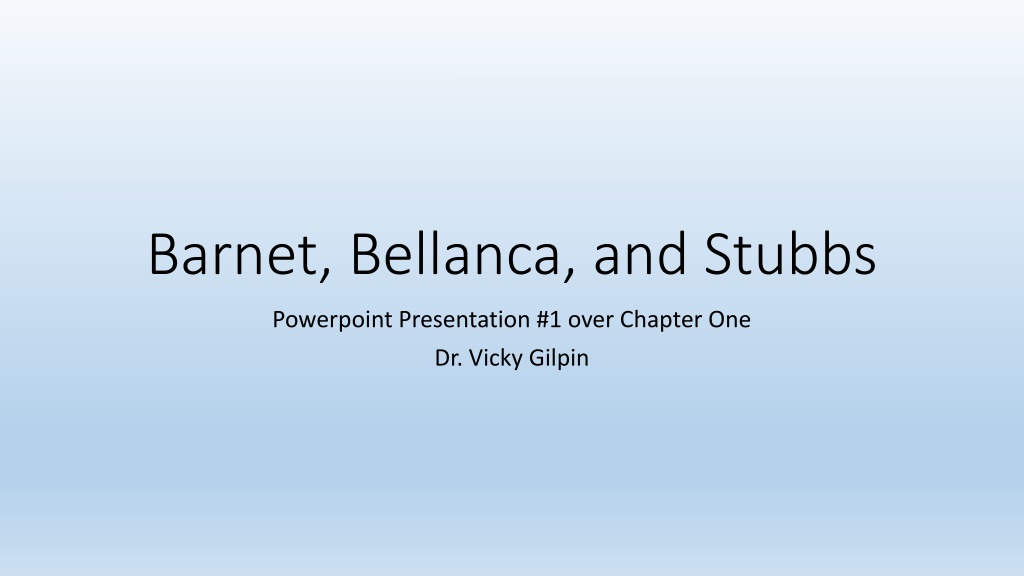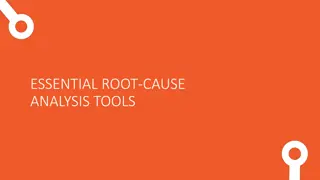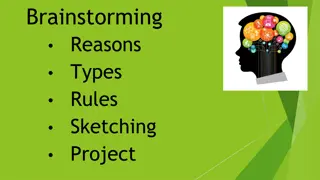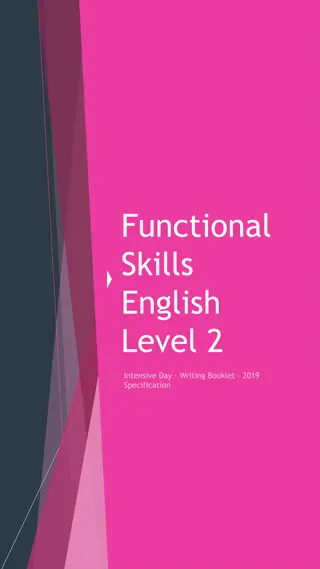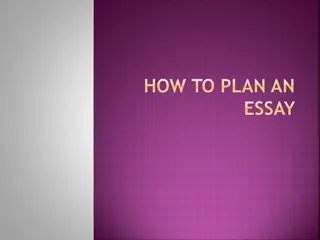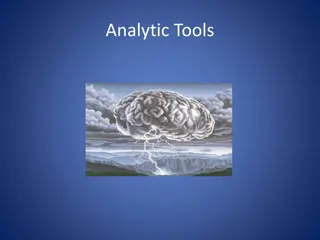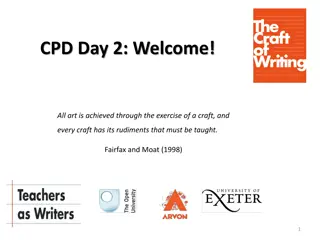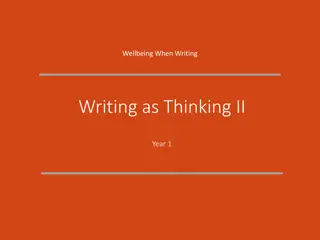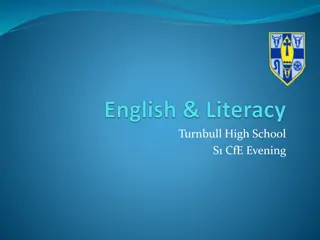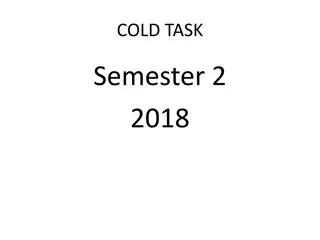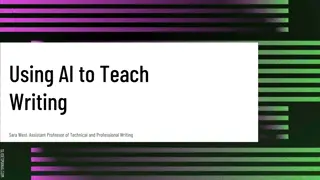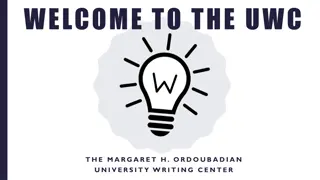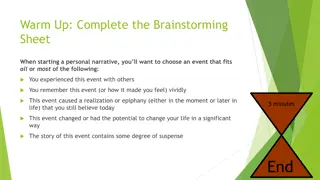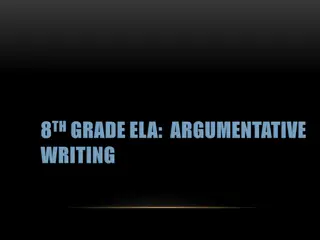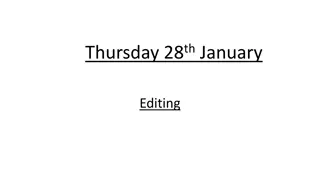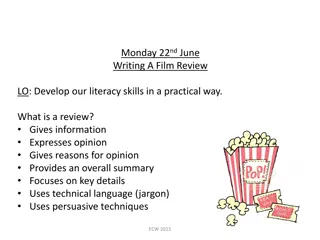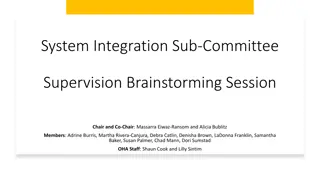Effective Brainstorming Techniques for Improved Writing
Explore various brainstorming methods such as listing, scratch outlining, clustering, and freewriting to enhance your writing process. Understand the importance of defining the subject, topic, and thesis to develop a well-structured paper.
Download Presentation

Please find below an Image/Link to download the presentation.
The content on the website is provided AS IS for your information and personal use only. It may not be sold, licensed, or shared on other websites without obtaining consent from the author.If you encounter any issues during the download, it is possible that the publisher has removed the file from their server.
You are allowed to download the files provided on this website for personal or commercial use, subject to the condition that they are used lawfully. All files are the property of their respective owners.
The content on the website is provided AS IS for your information and personal use only. It may not be sold, licensed, or shared on other websites without obtaining consent from the author.
E N D
Presentation Transcript
Barnet, Bellanca, and Stubbs Powerpoint Presentation #1 over Chapter One Dr. Vicky Gilpin
Listing Lists do not require a formal organizational methods In fact, lists often are just that, a list of ideas However, after you start listing, you may discover that your ideas have a lot of similarities about which you were previously unaware I like listing on a ball of scrunched up paper; neat, perfect, beautiful paper has a tendency to make people anxious about the writing process
Scratch Outlining This is like a list However, with a scratch outline, you are roughly trying to figure out your connections or starting to group ideas under rough headings; at least, you are sort of thinking about how some ideas connect to other ideas
Clustering Some students think of these as webs or maps or a variety of other titles (often based on what their teachers have learned to call them). I learned any of these methods fall under the title graphic organizer, but I often forget that term. Basically, it is for people who like to see how the ideas might work together, but they just dislike lists and outlines, as those are boring. Often my listing becomes clustering because I start doodling.
Freewriting This is one of my personal favorites. It just means write down whatever the heck you know, think you know, could find out, and most importantly- might argue about a topic. It allows you to elaborate on lists, clusters, and outlines. In fact, when you do this, you might discover what you thought would just be a section of your paper is, in fact, the entire paper. Many of you have an advantage: smart phones that let you use voice-to-text straight to a notepad. Yeah, you have to go back and edit, but you can still get ideas down faster that way than if you are writing. This is also a great way to get some thoughts down if writing at first feels difficult.
Important aspects The subject: the major, over-arching idea, situation, issue, or event in which you are interested. Most of my initial subjects involve vampires or education. The topic: a narrowed-down sub-area of the subject. If I wanted to talk about a particular work, author, or theme in vampire literature, that could be my topic. Too often, people think their topic is their paper/thesis, and that is not correct. Thesis: the argument, the point, the reason you are writing.
How do you find a subject and go from subject to topic to thesis?
Here is one method First, ponder some potential subjects that interest or irritate you. Next, narrow them down. Think critically. What about the situation, issue, concept, vocation, etc etc etc is something arguable. You want to think about what is important to you and then how to dissect it. For example, vampires are a huge subject. However, economists use the vampire metaphor to analyze big businesses, sociologists use it to discuss people who are egocentric or exhaust their friends, and literary critics discuss the vampire metaphor in literature as symbols of something bigger. Those concepts might be topics.
To remember: In short, it is not enough to have a subject; you must concentrate your vision on a topic, a significant part of the field, just as a landscape painter or photographer selects a portion of the landscape and then focuses on it. Your interests are your most trustworthy guides to the portion of the landscape on which to focus. Thinking critically about your focus will enable you to refine it as you develop your thesis about it---as you make your topic your own (Barnet, Bellanca, and Stubbs, 11).
For example, these are vague subjects, not topics or arguments: Gender roles Race relations Sports Medicine Gay marriage Music Automobiles Animals Superstitions Haters Etc etc etc
However, they are great starts to narrowing down a topic and thinking about a thesis
You are perfectly capable of doing this well. Think about concepts you care enough about to examine for a whole semester Remember synectic metaphor: different concepts may have surprising effects upon each other Be interesting: I am your grader. If you are interested in it, I am interested in it, but if you are bored, I will be bored, and that seems like a poor decision for you to make!
After you have a potential subject/topic You need a tentative thesis, a working hypothesis, a proposition to be proved, disproved, or revised in light of information you discover (11). You do not want to plan your paper knowing exactly what you are going to discover: that is BORING. You do not want to be bored!
Thesis checklist (13) Does the sentence make a claim rather than merely offering a description or generalization? Is the claim arguable rather than self-evident, universally accepted, and of little interest? Does it say something the reader is likely to find compelling, or surprising, or interesting? Can evidence be [discovered, found, located, etc] to support the claim? Is the claim narrow enough to be convincingly supported withing the allotted time and in an essay of the assigned length?
